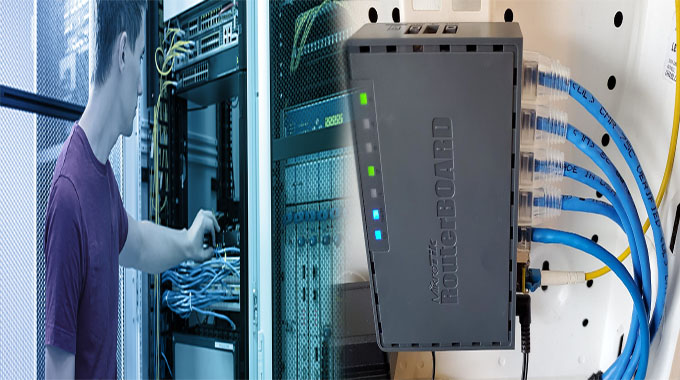Networking devices are the backbone of your business. They help you to connect multiple systems, devices, and other pieces of hardware together so that they can communicate with each other. This is essential if you want to create a secure network for your office or home. There are many different types of networking devices that you can use in your business, but there are five types that stand out from the rest:
A Network Switch
A network switch is a device that connects multiple computers on a network. It’s the center of the network, and it allows you to connect your computer to other computers.
A switch can be either hardware or software (or both). In most cases, switches are hardware devices–small boxes with ports in them. Switches come in different types: some have fewer ports than others; some have more; some have special features like VLANs (virtual local area networks) or QoS (quality of service).
A Wireless Access Point
If you want to connect devices that don’t have wireless capability, a wireless access point (WAP) is the perfect solution. A WAP allows you to extend your network’s range by connecting it directly to an Ethernet cable. This can be helpful if you need to connect multiple computers and other devices in different rooms of your office or home, but want them all on the same network.
A WAP also lets you connect devices with built-in wireless adapters without needing additional hardware like an external antenna. However, this method isn’t always ideal because it requires installing software drivers for each device–and those drivers aren’t always compatible across different operating systems and brands of hardware products from different manufacturers who may use different internal components within their products’ designs (such as chipsets).
A Network Router
A router is a device that connects multiple devices to each other and the internet. It can be a hub, bridge or switch, but it is always a layer 3 device. A router can also be used as a firewall and an access point (AP). If you want to connect more than one computer to the Internet at once, then you will need either static IP addresses or DHCP services from your ISP.
A Network Device Firewall
A network device firewall is a hardware or software application that monitors incoming and outgoing traffic on your network. It blocks unauthorized access, protects against malicious attacks, and helps prevent data leaks.
The best way to understand how a firewall works is by using the analogy of a castle wall. The castle wall serves as your perimeter defense against invaders–anyone who wants to enter must pass through an entrance gate that has been carefully guarded by armed guards since ancient times (or at least since 1982). In this scenario:
- The castle wall represents one side of your business’s security system–it keeps out intruders trying to access your internal systems from outside sources like the Internet or other networks outside yours
- The entrance gate represents another piece within this same system–it allows authorized users inside only after identifying them through biometrics (e-mail address) or physical ID cards (badge).
These are the best networking devices for your business.
You need a network switch to connect your devices. A switch is the device that allows you to share an internet connection, printers and other resources with multiple computers or devices.
A wireless access point is necessary if you want to create an environment where users can connect their laptops or smartphones wirelessly. This way they won’t be tied down by cables while they work in different rooms around the office.
Your business will benefit greatly from having a router because it provides security for all connected devices on your network by blocking unwanted incoming traffic from outside sources such as hackers trying to steal data from your computer systems through unauthorized connections (also known as “malware”). In addition, routers provide firewalls which protect against viruses that may try entering through ports opened by applications running on PCs within range of each other’s signals (like those created when someone uses Skype).
These are the best networking devices for your business.














